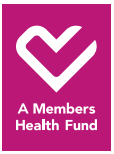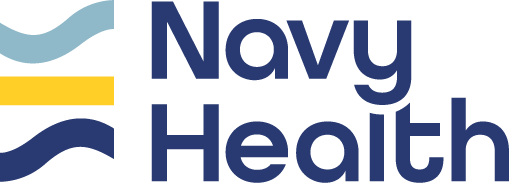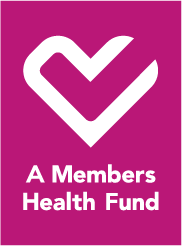HEALTH TRANSITION READINESS CHECKLIST
Our Transition Readiness Checklist will guide you in ensuring you are prepared for a smooth healthcare transition from the Australian Defence Force to civilian life.
HEALTH TRANSITION READINESS CHECKLIST
Our Transition Readiness Checklist will guide you in ensuring you are prepared for a smooth healthcare transition from the Australian Defence Force to civilian life.

Post-Transition Healthcare
During your ADF service career, Joint Health Command would have supported your health needs with a range of medical, dental, and mental health services. However, after your transition you will be required to utilise the civilian healthcare system to make these arrangements for yourself (unless DVA assist you in organising a procedure).
We recommend using our Transition Readiness Checklist to ensure you are prepared to access the health services and support you may need post-transition.
Post-Transition Healthcare
During your ADF service career, Joint Health Command would have supported your health needs with a range of medical, dental, and mental health services. However, after your transition you will be required to utilise the civilian healthcare system to make these arrangements for yourself (unless DVA assist you in organising a procedure).
We recommend using our Transition Readiness Checklist to ensure you are prepared to access the health services and support you may need post-transition.
1. Attend an ADF Member and Family Transition Seminar
ADF Transition Seminars are a fantastic source of information regarding your healthcare transition from ADF to civilian life. It is compulsory for members to attend an ADF Transition Seminar within 12 months of their separation date.
You are able to attend a transition seminar either virtually or in-person. They are one-day events that include informative presentations about the transition process, and panels where you can hear from previously transitioned members and experts.
During the transition seminar, there will be multiple healthcare sessions covering the public and private health insurance considerations, and tips on what to do before, during and after transition from a health perspective.
You will also have the opportunity to talk to a Navy Health representative about health insurance.
2. Register for Medicare or transfer to your family's card
Registering for Medicare is the first step to gain access to Australia’s public healthcare system. It is important to complete registration with Medicare prior to your transition from the ADF to maintain your healthcare support.
If your family already has access to Medicare, you can add yourself to the family Medicare card.
You can register for Medicare by completing a form, found here or by enrolling online using your MyGov account.
3. Choose your healthcare providers (including a civilian GP and dentist)
Your relationships with your healthcare providers, particularly your GP, can be among some of the most important relationships you will have outside of your family. When choosing your healthcare providers, it is important to find out as much information as possible to understand if they will be a good fit for your ongoing health needs. For example, you may prefer to find a doctor that is familiar with DVA entitlements and can refer you to specialists that accept your DVA card.
An online search of medical providers in your chosen area is a good starting point. Most medical practice websites will include profiles of individual doctors and their areas of expertise to help you select your GP. You can contact their practice and schedule an appointment at a time that suits you.
In your appointment you can communicate any specialist services you may require, and your GP will be able to provide you with informed referrals to these specialists.
To help you find a civilian health provider, please visit www.healthdirect.gov.au.
4. Schedule your Separation Health Examination (SHE)
Separation health and dental examination appointments should be undertaken 6 months prior to your separation date. The examination provides a complete medical evaluation at your ADF separation which will document any medical concerns which may have been identified during your ADF career and assess your current health and medical history.
You will be required to nominate a civilian general practitioner, dentist, and any required specialists. Members will also need to complete a mental health questionnaire, which may result in a mental health care referral.
5. Request medical and dental records
60 days prior to your separation, we recommend requesting a complete copy of your final medical, dental and psychologist records.
After obtaining these records, you will require some time to review your health and medical needs to determine which health care support you and/or your family may need following your transition.
We recommend scheduling a comprehensive health checkup with your ADF medical professionals before your transition to discuss any ongoing medical treatments or prescriptions that may or may not be covered by DVA once you discharge.
6. Understand Your Transition Period Coverage and/or DVA Benefits
Depending on your specific circumstances, after your discharge date you will be responsible for funding and managing your own healthcare. If you are a veteran who holds a DVA Gold or White Card, there are additional factors to consider when evaluating your health care needs. With a DVA Gold or White card you are already entitled to certain healthcare benefits, however, based on your identified needs in Step Two, you will need to determine if additional coverage is required. You may also want to consider how important is it for you to be able to choose your own specialist and not be limited to those that accept your DVA Card.
We recommend reaching out to the Department of Veterans’ Affairs to better understand your DVA benefits so you can make informed healthcare decisions.
7. Consider Private Health Insurance and request a Certificate of Appreciation
Medicare will cover most Australian residents for healthcare, but it does not cover everything. You might want to consider taking out private health insurance if you would like to give yourself a wider range of options and more comprehensive cover.
As there are two types of private health insurance available (Hospital & Extras), you will need to consider what services you will want to be covered for. You can take out these separately, or many funds will offer combined policies. Click on the links to see our Hospital and Extras cover options and what is included in each.
You should also consider the numerous Government initiatives and penalties in place which act as a way to encourage people to take out private health insurance. If the amount of tax you’re paying with the Medicare Levy Surcharge is more than the premium of a Basic Hospital policy, it may be more cost effective for you to hold private health insurance. Click here to learn about the Government initiatives and penalties.
Please note that if you do not take out Hospital cover after your transition, but you decide to take it out at a later date, you may incur a loading on your premiums under the Lifetime Health Cover rules, which may increase the premiums you pay later in life.
If you choose to take out private health insurance, you will be issued a health insurance letter (also known as Certificate of Appreciation), which provides your full-time ADF enlistment and discharge date.
8. Consider Family Health Coverage
If you have dependants, whether that may be children or a spouse, you should consider their healthcare requirements during your post-transition healthcare planning. Once you’ve evaluated their needs, you can determine the health cover that is right for them whether under Medicare, or Private Health Insurance.



